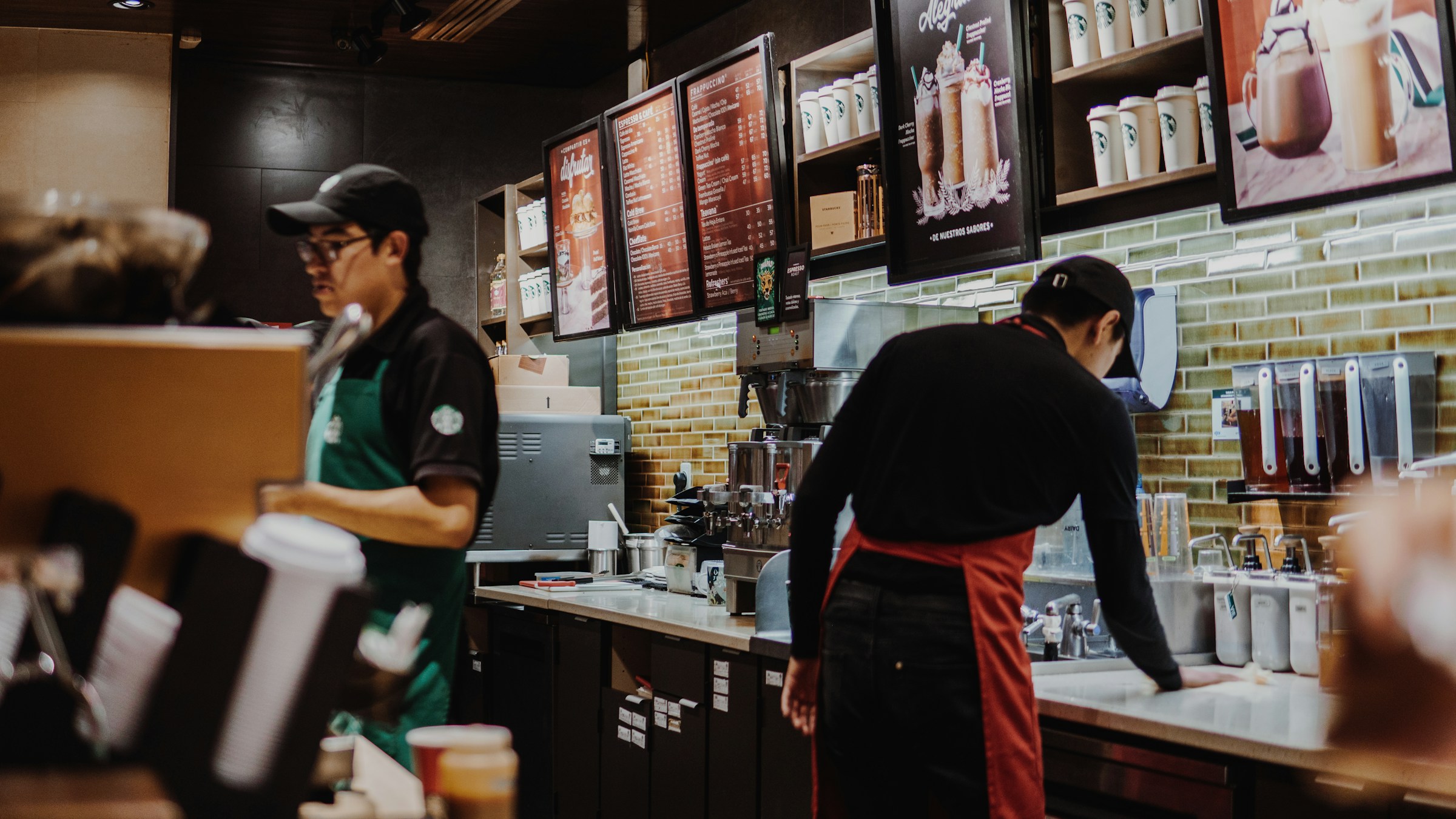The U.S. Supreme Court on Tuesday indicated a potential victory for Starbucks, reflecting a challenge to the extended authority of the National Labor Relations Board (NLRB) in disputes regarding the reinstatement of union workers.
This pivotal case originates from Starbucks's opposition to a 2022 federal ruling, which mandated the reemployment of seven baristas from a Memphis store who were terminated for their unionizing efforts.
The Memphis Dispute
Yahoo reported that accusations flew as these baristas, dismissed under claims of security violations for permitting TV interviews in the store post-hours, stood their ground, stating their unionizing rights under the National Labor Relations Act (NLRA) were infringed. Starbucks, headquartered in Seattle, staunchly defended its actions as legally sound.
Meanwhile, the NLRB, siding with the employees, labeled the firings illegal and initiated a complaint against the coffee giant, thus igniting a debate that reached the nation's highest court.
Supreme Court's Stance
Reuters noted that during the oral argument session, Justices spanning the ideological spectrum seemed inclined toward Starbucks's argument, questioning the NLRB's expansive control over labor disputes. Justice Neil Gorsuch's skepticism highlighted the discussion and pointed toward a reconsideration of the board's authority, particularly in forcing companies to rehire union organizers.
Legal and Labor Implications
Starbucks's plea to the Supreme Court aimed to toughen the criteria for federal injunctions against companies accused of labor law violations, a move argued as necessary for a fair resolution of labor disputes. This case underscores a significant confrontation between worker rights and corporate interests, shedding light on the government's role in labor conflicts and the freedom of employees to organize.
The controversy occurs against a backdrop of increasing labor activism and President Joe Biden's pronounced pro-union agenda. With over 400 out of Starbucks's 9,600 U.S. stores voting for unionization, the labor relations landscape is undoubtedly shifting.
Yet, amidst these changes, the Supreme Court's forthcoming decision in this case is eagerly anticipated, poised to potentially reshape the dynamics of labor disputes and unionization efforts across the country.
Photo: Asael Peña/Unsplash



 Panama Supreme Court Voids CK Hutchison Port Concessions, Raising Geopolitical and Trade Concerns
Panama Supreme Court Voids CK Hutchison Port Concessions, Raising Geopolitical and Trade Concerns  Instagram Outage Disrupts Thousands of U.S. Users
Instagram Outage Disrupts Thousands of U.S. Users  Weight-Loss Drug Ads Take Over the Super Bowl as Pharma Embraces Direct-to-Consumer Marketing
Weight-Loss Drug Ads Take Over the Super Bowl as Pharma Embraces Direct-to-Consumer Marketing  SpaceX Prioritizes Moon Mission Before Mars as Starship Development Accelerates
SpaceX Prioritizes Moon Mission Before Mars as Starship Development Accelerates  Meta Faces Lawsuit Over Alleged Approval of AI Chatbots Allowing Sexual Interactions With Minors
Meta Faces Lawsuit Over Alleged Approval of AI Chatbots Allowing Sexual Interactions With Minors  Missouri Judge Dismisses Lawsuit Challenging Starbucks’ Diversity and Inclusion Policies
Missouri Judge Dismisses Lawsuit Challenging Starbucks’ Diversity and Inclusion Policies  Nasdaq Proposes Fast-Track Rule to Accelerate Index Inclusion for Major New Listings
Nasdaq Proposes Fast-Track Rule to Accelerate Index Inclusion for Major New Listings  FDA Targets Hims & Hers Over $49 Weight-Loss Pill, Raising Legal and Safety Concerns
FDA Targets Hims & Hers Over $49 Weight-Loss Pill, Raising Legal and Safety Concerns  Ford and Geely Explore Strategic Manufacturing Partnership in Europe
Ford and Geely Explore Strategic Manufacturing Partnership in Europe  Google Halts UK YouTube TV Measurement Service After Legal Action
Google Halts UK YouTube TV Measurement Service After Legal Action  U.S. Condemns South Africa’s Expulsion of Israeli Diplomat Amid Rising Diplomatic Tensions
U.S. Condemns South Africa’s Expulsion of Israeli Diplomat Amid Rising Diplomatic Tensions  Citigroup Faces Lawsuit Over Alleged Sexual Harassment by Top Wealth Executive
Citigroup Faces Lawsuit Over Alleged Sexual Harassment by Top Wealth Executive  Federal Judge Blocks Trump Administration Move to End TPS for Haitian Immigrants
Federal Judge Blocks Trump Administration Move to End TPS for Haitian Immigrants  Trump Lawsuit Against JPMorgan Signals Rising Tensions Between Wall Street and the White House
Trump Lawsuit Against JPMorgan Signals Rising Tensions Between Wall Street and the White House  US Judge Rejects $2.36B Penalty Bid Against Google in Privacy Data Case
US Judge Rejects $2.36B Penalty Bid Against Google in Privacy Data Case  Trump Family Files $10 Billion Lawsuit Over IRS Tax Disclosure
Trump Family Files $10 Billion Lawsuit Over IRS Tax Disclosure  Trump Administration Sued Over Suspension of Critical Hudson River Tunnel Funding
Trump Administration Sued Over Suspension of Critical Hudson River Tunnel Funding 































